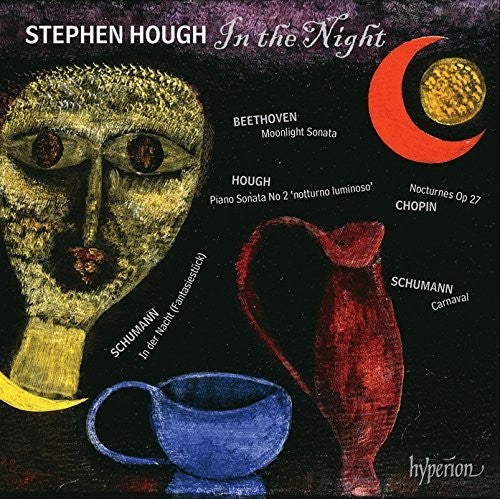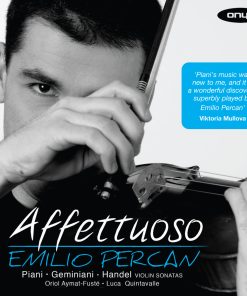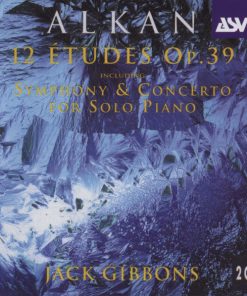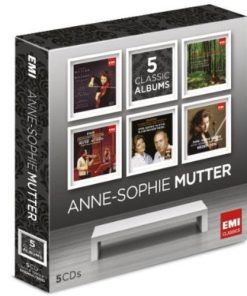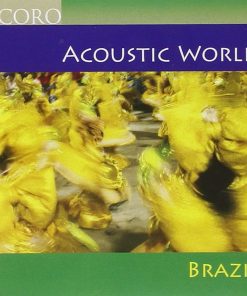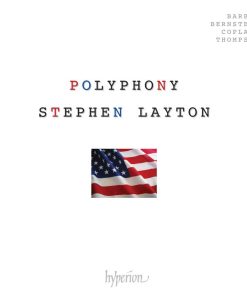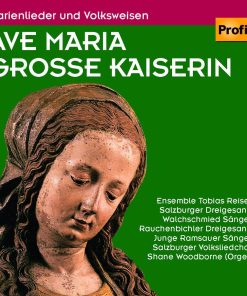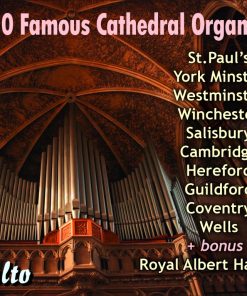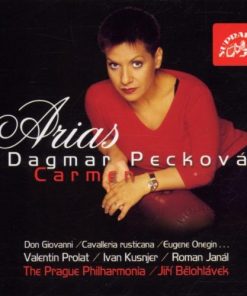In the Night – Stephen Hough Hyperion
$ 20,99 $ 12,59

1
In der Nacht (No 5 of Fantasiestücke, Op 12)[4’10]Robert Schumann (1810-1856)
Piano Sonata in C sharp minor ‘Moonlight’ Op 27 No 2[14’06]Ludwig van Beethoven (1770-1827)
2
Adagio sostenuto[5’08]
3
Allegretto[1’53]
4
Presto agitato[7’05]
5
Nocturne in C sharp minor Op 27 No 1[5’13]Frédéric Chopin (1810-1849)
6
Nocturne in D flat major Op 27 No 2[5’30]Frédéric Chopin (1810-1849)
7
Piano Sonata No 2 ‘notturno luminoso'[18’23]Stephen Hough (b1961)
Carnaval Op 9[29’47]Robert Schumann (1810-1856)
8
Préambule: Quasi maestoso[2’12]
9
Pierrot: Moderato[1’31]
10
Arlequin: Vivo[1’02]
11
Valse noble: Un poco maestoso[2’10]
12
Eusebius: Adagio[1’37]
13
Florestan: Passionato[0’59]
14
Coquette: Vivo[1’37]
15
Réplique: L’istesso tempo[0’48]
16
Papillons: Prestissimo[0’47]
17
ASCH–SCHA (Lettres dansantes): Presto[0’51]
18
Chiarina: Passionato[1’29]
19
Chopin: Agitato[1’21]
20
Estrella: Con affetto[0’29]
21
Reconnaissance: Animato[1’55]
22
Pantalon et Colombine: Presto[1’01]
23
Valse allemande: Molto vivace[0’51]
24
Paganini (Intermezzo): Presto[1’21]
25
Aveu: Passionato[1’20]
26
Promenade: Comodo[2’39]
27
Pause: Vivo[0’15]
28
Marche des Davidsbündler contre les Philistins: Non allegro[3’32]

This latest recital album by ‘the thinking person’s virtuoso: an extraordinary pianist’ (The New York Times) takes the listener on a journey through that most intense and absorbing of nineteenth-century obsessions, the night. The Romantic night was one without sleep; where experiences are mutated through darkness. Stephen Hough’s thoughtful programming creates a new aural sphere for some of the most celebrated piano works in the repertoire.
Other recordings by Stephen Hough
Hough begins with Schumann’s troubled, reeling ‘In der Nacht’ from Fantasiestücke, and continues with Beethoven’s ‘Moonlight’ Sonata and Chopin’s two Op 27 Nocturnes.
With Schumann’s Carnaval we eavesdrop on one of the most vibrant parties in the nineteenth-century piano literature, with its panoply of brilliantly etched character sketches depicting both real people—such as Chopin and Paganini—and imaginary ones. Each movement is vividly contrasted; there are moments of unbridled ecstasy, elegant poise and elusive subtlety.
Also included is Stephen Hough’s own Piano Sonata No 2 ‘notturno luminoso’, which he describes as ‘about a different kind of night … the brightness of a brash city in the hours of darkness; the loneliness of pre-morning; sleeplessness and the dull glow of the alarm clock’s unmoving hours; the irrational fears which are only darkened by the harsh glare of a suspended, dusty light bulb’.
Fast Shipping and Professional Packing
Due to our longstanding partnership with UPS FedEx DHL and other leading international carriers, we are able to provide a range of shipping options. Our warehouse staff are highly trained to pack your goods exactly according to the specifications that we supply. Your goods will undergo a thorough examination and will be safely packaged prior to being sent out. Everyday we deliver hundreds of packages to our customers from all over the world. This is an indication of our dedication to being the largest online retailer worldwide. Warehouses and distribution centers can be located in Europe as well as the USA.
Orders with more than 1 item are assigned processing periods for each item.
Before shipment, all ordered products will be thoroughly inspected. Today, most orders will be shipped within 48 hours. The estimated delivery time is between 3-7 days.
Returns
The stock is constantly changing. It's not entirely managed by us since we are involved with multiple parties such as the factory and our storage. The actual stock can fluctuate at any time. Please understand it may happen that your order will be out of stock when the order is placed.
Our policy is valid for 30 days. If you haven't received your product within 30 days, we're not able to issue either a return or exchange.
You are able to return a product if it is unused and in the same condition when you received it. It must also still remain in the original packaging.
Related products
MUSIC CD
MUSIC CD
